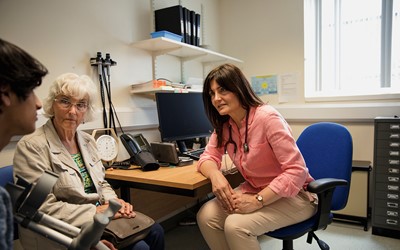
People living with severe mental illness have a reduced life expectancy of 15-20 years, particularly due to cardiovascular disease linked to modifiable risk factors.
The Primrose programme trains healthcare professionals to offer tailored sessions to patients to help them set specific, personalised and achievable health goals that are tailored to their individual needs and circumstances.
The Primrose model began with a randomised controlled trial (2010), where Primrose was estimated to save the NHS £895 per patient per year in healthcare costs compared to usual care. Since then, it has expanded to include intervention development, implementation, and evaluation, supported by NIHR ARC North Thames.
The Primrose model has been included in national guidance recommended by NHS England, as well as local strategy.
At the patient level, individuals who were supported through Primrose are less likely to be admitted to inpatient care, and report improved mental health, motivation, and physical health. Healthcare staff also noted patients’ improved engagement, quality of life, and reduced isolation.
At the staff level, healthcare professionals have gained confidence and skills to work in a patient-centred and holistic way with patients living with severe mental illness. This can also inform their broader clinical practice beyond the Primrose programme.


